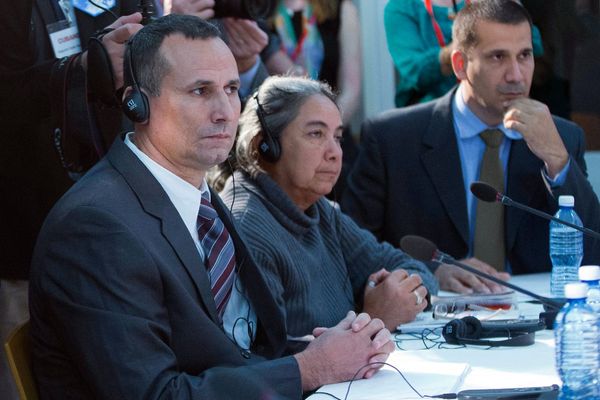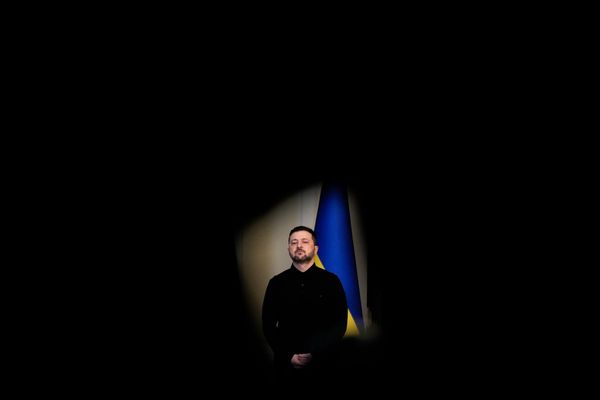
Hungary’s EU commissioner has denied any knowledge of alleged attempted spying by his government during his time as the country’s top diplomat in Brussels, according to a commission spokesperson.
Olivér Várhelyi sat down with European Commission president, Ursula von der Leyen, on Sunday to discuss the allegations reported by a consortium of investigative journalists last week.
On Monday, the commission’s chief spokesperson, Paula Pinho, said: “The president asked the commissioner whether he was aware of any recruitment attempts by Hungarian intelligence services targeting the European Commission staff while he was at the permanent representation of Hungary.
“The commissioner said he was not aware of these attempts.”
An internal group set up to investigate the matter was continuing its work, Pinho added. Another commission spokesperson did not respond directly to a question about whether Várhelyi, a loyal ally of Hungary’s prime minister, Viktor Orbán, was continuing to receive confidential documents, citing “operational security” of the ongoing investigation.
The espionage allegations emerged last week, when the Hungarian investigative outlet Direkt36, working with Belgian and German media, reported that Hungarian intelligence began attempting to spy on the commission more than a decade ago, with efforts to recruit officials and get them to hand over classified documents. The allegations cover the years 2012 to 2018, when tensions were increasing between the commission and Orbán’s self-declared government of “illiberal democracy”.
Officers working for Hungary’s foreign intelligence agency, the Information Office, reportedly had diplomatic cover as employees of Hungary’s permanent representation to the EU, headed by Várhelyi from 2015 to 2019.
Each EU member state has a diplomatic outpost in Brussels focused on EU policy and law making, but it would have once been unthinkable that such an outpost could be used as a base for spying on European institutions.
Hungary’s government has denied the allegations, describing them as part of a smear campaign.
Várhelyi was reappointed to be his country’s European commissioner in 2024, having served a five-year term from 2019. He also served in other senior diplomatic roles at the Brussels permanent representation between 2011 and 2015.
One Hungarian source who worked at the commission on an issue that had caused tensions between Brussels and the Orbán government told Direkt36 that they had become suspicious of a contact at the Hungarian permanent representation. The person had invited the commission official to a meeting in Budapest at the Hungarian foreign office, but at the last minute the venue was changed to a shopping mall in Buda.
At that encounter, the commission official was asked to pass on classified internal documents, with an appeal to their patriotic feelings. “We’re both Hungarians, working for the same goal,” the alleged spy is reported to have said. But the official said no and ended the conversation.
According to the media investigation, Belgian intelligence are also monitoring a Hungarian-government backed cultural house, close to the Belgian prime minister’s office. The House of Hungary was opened by the Orbán government in 2024 to promote music, science and culture. A source told Belgium’s De Tijd that the intelligence services viewed such institutions as a potential risk: “The cultural mission is often just a secondary role.”







